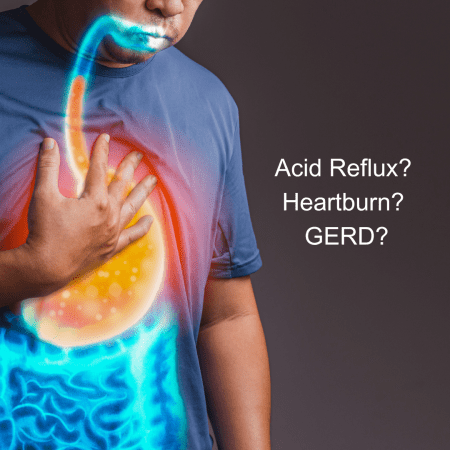 Roughly 1/3 of the adult population in the U.S. suffer from acid reflux. That’s a lot of unhappy people!
Roughly 1/3 of the adult population in the U.S. suffer from acid reflux. That’s a lot of unhappy people!
If you are one of them, you have almost certainly been prescribed a proton pump inhibitor (PPI). Prilosec and Nexium are two PPI brands you might recognize. A PPI is used to reduce the amount of hydrochloric acid (HCL), sometimes called stomach acid.
The acid reflux, heartburn and/or indigestion you experience could mean your HCL is too high. But, it’s more likely that your HCL is too low.
Let’s take a step back real quick.
What does HCL even do in the body?
- It helps break down, digest, and absorb nutrients.
- It serves as a first line of defense against incoming pathogens.
- Creates a sterile environment for the gut.
- Changes the pH balance in the digestive tract.
- Impacts microbiome diversity.
What are some of the causes of low HCL?
If you are over the age of 65, that could be a major contributing factor as HCL gradually decreases over our lifespan. Other reasons include things like chronic inflammation in the gut, gluten sensitivity, stress, thyroid issues, diet, and medications. One of the more common reasons is a Helicobacter Pylori (H. Pylori) infection. I will be speaking about this pesky bacteria soon.
How do you know if your HCL is high or low?
If you find that your acid reflux symptoms are not subsiding and you reach for acid blockers frequently, it’s a strong indication that you probably are not producing sufficient hydrochloric acid and it would be wise to supplement with HCL. That said, if you decide to take HCI and feel discomfort, you could actually have stomach inflammation or even ulcers caused by an H. Pylori bacterial infection.
We all have low levels of H. Pylori but nearly 50% of Americans have an over abundance of H. Pylori. It is wise, if you have these issues, to run a comprehensive stool test and have it interpreted by someone trained to do so. We can help out if you are interested.
As a side note, if you have indigestion but not necessarily acid reflux, it may be due to gallbladder sludge. There will be more to come on the gallbladder soon!
Regardless of high or low HCL or gallbladder sludge, it is imperative to get to the bottom of your acid reflux, indigestion or heartburn once and for all. Acid blockers are not long term solutions and can actually do more harm than good.
Comprehensive blood work and stool testing helps us better understand the causes of your acid reflux. It’s best to test and not guess.